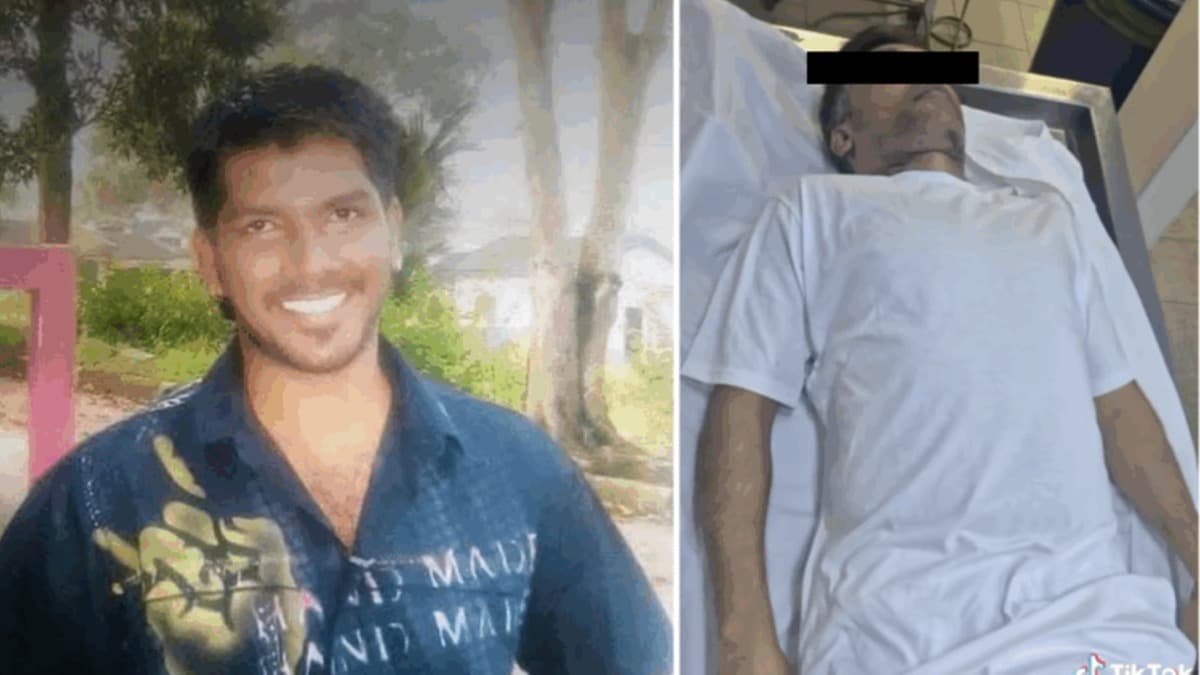Singapore executes Malaysian national Datchinamurthy Kataiah for heroin trafficking after brief postponement
Malaysian national Datchinamurthy Kataiah was executed in Singapore on 25 September 2025 for trafficking heroin, after authorities briefly postponed the hanging earlier in the day. The case reignited public debate over Singapore’s use of the death penalty for drug offences and drew criticism from human rights advocates.

- Malaysian Datchinamurthy Kataiah was executed at Changi Prison on 25 September after a brief postponement earlier that day.
- He was convicted in 2015 of trafficking nearly three times the heroin amount that mandates the death penalty under Singapore law.
- Human rights advocates condemned the execution and the abrupt reversal of the postponement notice.
Malaysian national Datchinamurthy Kataiah was executed in Singapore on 25 September 2025 for trafficking heroin, after a brief postponement earlier in the day.
The 39-year-old was hanged at Changi Prison at 3pm after his family had earlier been informed that the execution would not take place in the morning.
His lawyer, N Surendran, told New Straits Times (NST) that the family had been notified by prison authorities around midnight that the execution was not proceeding as scheduled. However, the Central Narcotics Bureau (CNB) later confirmed that the sentence was carried out in the afternoon.
Arrested in 2011 and sentenced in 2015
Datchinamurthy was arrested in 2011 after being found in possession of 44.96g of diamorphine, or pure heroin.
In a press release on 25 September, CNB stated that the amount was nearly three times the 15g threshold under Singapore’s Misuse of Drugs Act that mandates the death penalty.
He was convicted and sentenced to death on 15 April 2015, with his appeal dismissed by the Court of Appeal on 5 February 2016.
Execution delayed in 2022 due to legal proceedings
The execution was initially scheduled for 2022 but was postponed due to ongoing legal proceedings.
CNB said Datchinamurthy had full legal representation throughout both his trial and appeal processes. Clemency petitions submitted to the President of Singapore were also unsuccessful.
Human rights concerns raised
The execution has drawn condemnation from human rights advocates and legal experts.
Singapore human rights lawyer and activist M. Ravi, who previously represented Datchinamurthy, described the hanging as a “cruel, inhuman and degrading punishment” in comments to The Online Citizen (TOC).
He also criticised the abrupt reversal of the postponement notice, saying, “This abrupt reversal is deeply distressing. To raise hopes of a reprieve and then rescind it inflicts intense anguish on Datchinamurthy and his loved ones. Such treatment risks violating fundamental principles of justice and humanity and is inconsistent with Singapore’s obligations under the rule of law.”
A vigil was held on Tuesday at Hong Lim Park for Datchinamurthy, after his family was informed of the impending execution on Sunday, 21 September. The event was organised by the Transformative Justice Collective (TJC), an advocacy group opposing capital punishment in Singapore.
A video shared by Ravi on his Facebook page showed distraught family members after receiving Datchinamurthy’s body following the execution.
Strict drug laws
Singapore maintains a strict zero-tolerance approach to drug trafficking, with the death penalty mandated for certain quantities of narcotics under the Misuse of Drugs Act.
Diamorphine, or heroin, is one of the controlled substances listed under the Act, with the 15g threshold triggering capital punishment.
The government has consistently defended its stance, arguing that tough drug laws serve as a strong deterrent and protect society from the harms of drug abuse.
In its latest statement, CNB reiterated that due process had been observed and that Datchinamurthy had received full legal counsel throughout.
Continuing debate on capital punishment
The case has reignited debate about the use of the death penalty in Singapore, particularly for non-violent drug offences.
Advocacy groups such as the Transformative Justice Collective and Amnesty International have long argued that capital punishment does not effectively deter drug crime and disproportionately affects individuals from vulnerable backgrounds.
Singapore, however, maintains that its approach is necessary to prevent widespread drug problems seen in other countries. The government points to public surveys showing continued majority support for the death penalty as part of its broader anti-drug policy.
Internationally, Malaysia—Datchinamurthy’s home country—has recently moved to abolish the mandatory death penalty, replacing it with discretionary sentencing. The contrast has added to regional scrutiny of Singapore’s continued use of capital punishment.
Final hours and aftermath
Reports from rights groups indicate that Datchinamurthy’s family spent several hours at Changi Prison in the morning of 25 September, uncertain whether the execution would proceed. The confirmation came only hours before it was carried out.
Supporters and activists have called for greater transparency in communication with families of death row inmates, particularly in cases involving last-minute changes.
As of September 2025, Singapore has carried out at least four executions related to drug offences this year. Human rights organisations continue to call for a moratorium on capital punishment and a review of existing laws governing drug trafficking.







